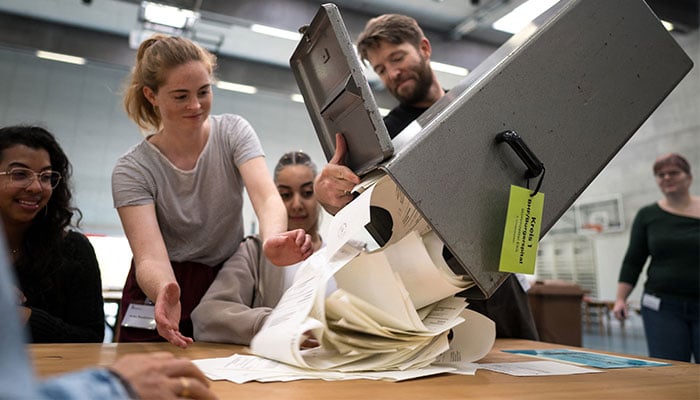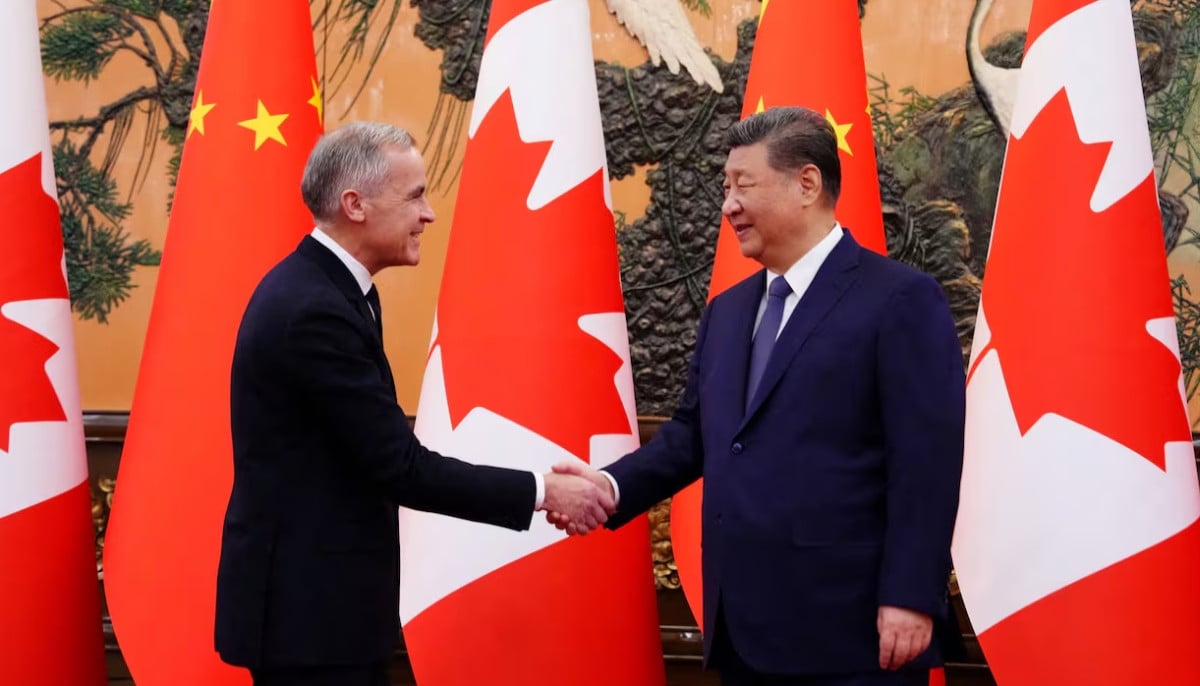Right-wing People's Party poised to sweep Switzerland polls as voting closes
Switzerland elects all 200 seats in National Council's lower house of parliament
Switzerland's right-wing populist Swiss People's Party are poised to sweep the general election, driven by anti-mass migration rhetoric and their commitment to combat "woke madness."
Voting closed at noon (1000 GMT), with most Swiss voters having already submitted their ballots over the past four weeks.
Switzerland, a prosperous European nation with 8.8 million inhabitants, elected all 200 seats in the National Council's lower house of parliament and all 46 in the Council of States, the upper chamber. Initial results, indicating percentages only, are expected around 4 pm (1400 GMT), followed by a seat projection two hours later.
The Council of States, representing the nation's cantons, is largely controlled by the centre-right party, The Centre, and the right-wing FDP.The Liberals. Elections in the upper house, decided by majority vote, typically do not lead to significant shifts in the balance of power.
In the National Council's lower house, which employs a proportional representation system, the Swiss People's Party (SVP), a right-wing populist party, appears poised to strengthen its position as the leading political force. Meanwhile, the Greens are expected to lose ground to the Social Democrats, according to opinion polls.
The SVP's election campaign revolved around its recurring theme: opposing "mass immigration" and expressing concerns about the Swiss population reaching 10 million. Their social media advertisements, using the slogan "New Normal?" featured criminal cases involving foreigners and depicted a world filled with violence, crime, and fear. Additionally, the SVP launched a campaign against "cancel culture" and what they referred to as "gender terror and woke madness."
The SVP, a staunchly anti-EU party, staunchly defends Switzerland's long-standing military neutrality and criticised Bern for aligning with EU sanctions on Russia in response to its actions in Ukraine, which the SVP sees as a breach of Switzerland's neutrality principle.
The SVP has consistently been the leading party in National Council elections since 1999, although the level of their support has fluctuated. The party aims to regain the support it lost four years ago, with the goal of approaching 30 percent, a threshold no Swiss party has ever reached under the proportional representation system.
On the opposite side of the political spectrum in the National Council's hemicycle, the Greens and the Green Liberals are expected to lose some of their gains from the 2019 election. Although climate change remains a significant issue in Switzerland, where Alpine glaciers are retreating rapidly, the environmentalist movement appears to have lost momentum during the COVID-19 pandemic. Economic concerns, such as the cost of living, inflation, and rising health insurance expenses, have taken precedence over environmental issues.
The Social Democrats are hoping to make gains by addressing these economic concerns and have proposed reforms, including linking health insurance contributions to income. Nevertheless, Swiss voter turnout for general elections typically hovers around 45 percent.
The 246 newly-elected parliamentarians will convene on December 13 to select the seven members of the Federal Council government. Few substantial changes are expected, as the government operates on a consensus-based decision-making process.
Switzerland's general election reflects a broader global trend in which right-wing populist parties have gained prominence by emphasising issues related to immigration, cultural identity, and traditional values.
-
Chinese New Year explained: All you need to know about the Year of the Horse
-
Canadian passport holders can now travel to China visa-free: Here's how
-
Edmonton weather warning: Up to 30 cm of snow possible in parts of Alberta
-
ICE agents 'fake car trouble' to arrest Minnesota man, family says
-
China confirms visa-free travel for UK, Canada nationals
-
Bad Bunny's star power explodes tourism searches for his hometown
-
Murder suspect kills himself after woman found dead in Missouri
-
Poll reveals majority of Americans' views on Bad Bunny












